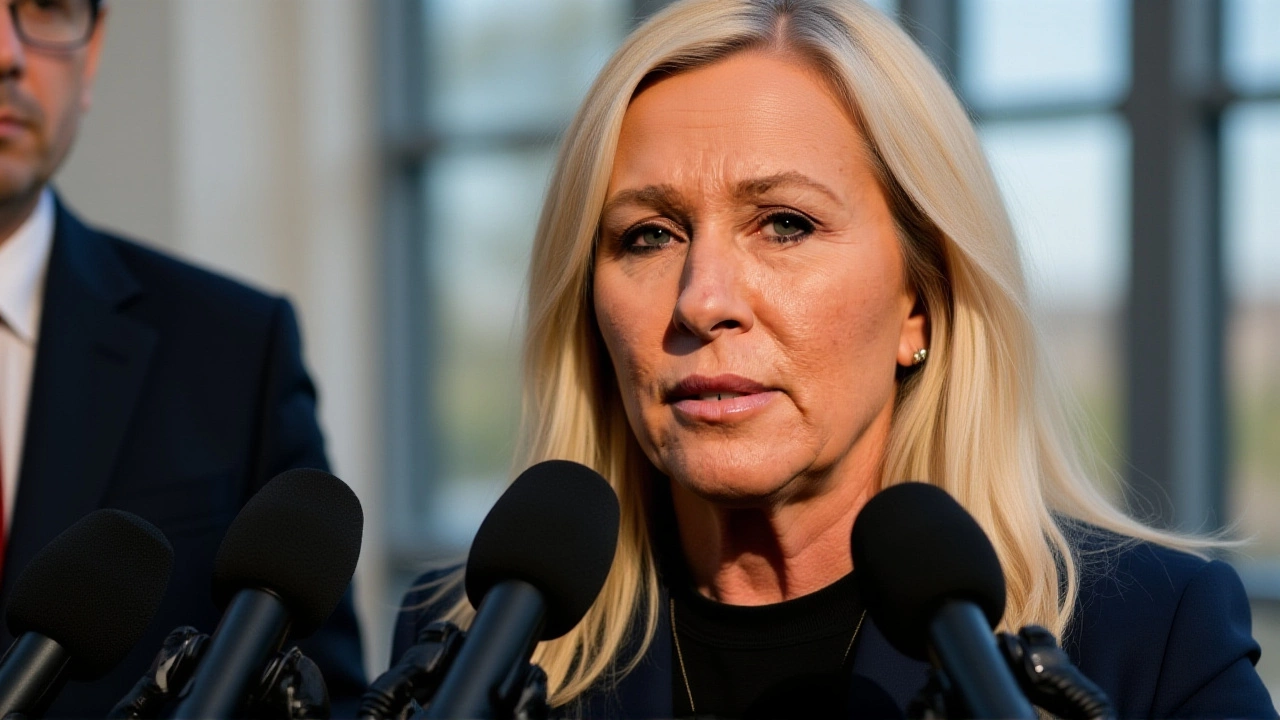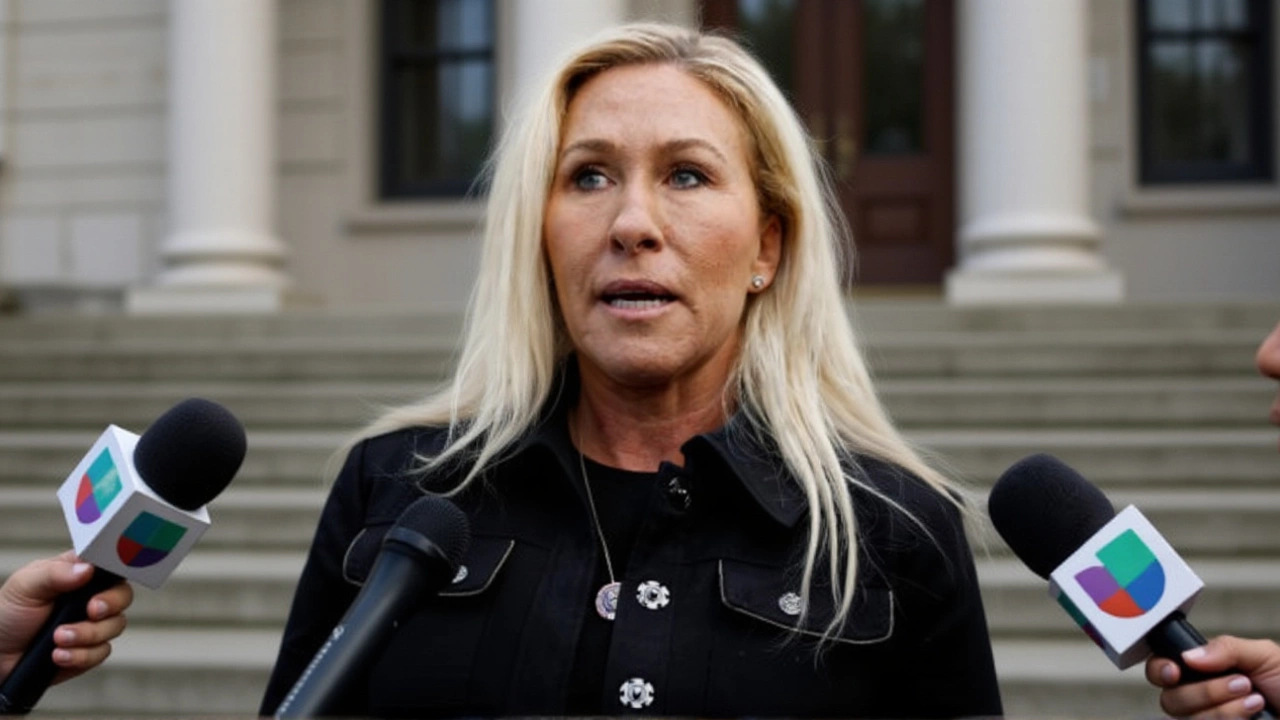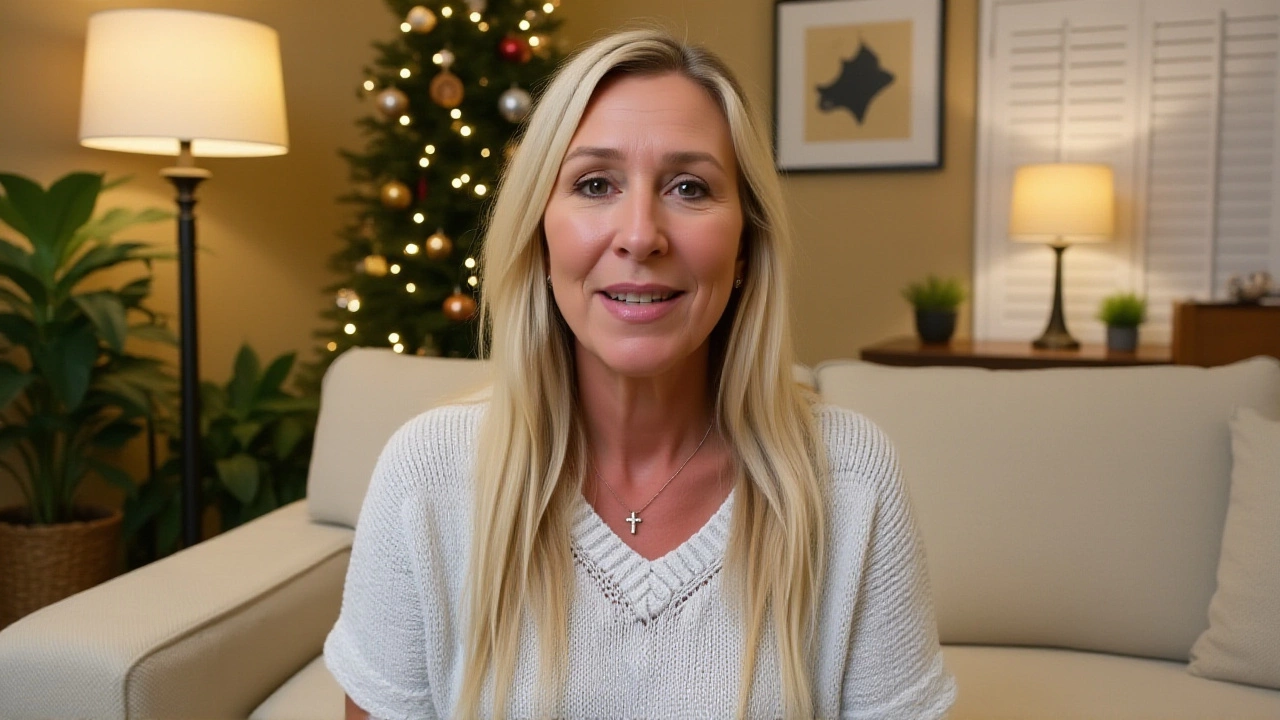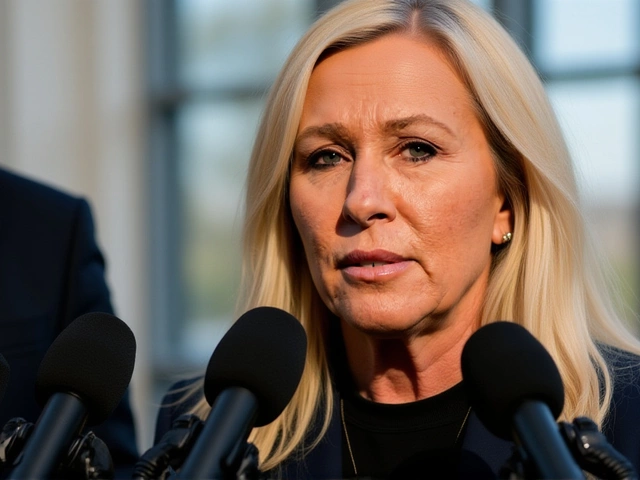Marjorie Taylor Greene Resigns from Congress, Cuts Ties with Trump After Public Rift

When Marjorie Taylor Greene posted a video on X on a Friday night in January 2025, few expected it to upend Washington’s political landscape. But that’s exactly what happened. The Marjorie Taylor Greene, Republican representative for Georgia’s 14th congressional district, announced she would resign from the U.S. House of Representatives before her term ended — a stunning break from Donald J. Trump, her former political patron and most vocal ally. The timing? Late Friday. The platform? Social media. The message? Clear: she’s done.
A Political Marriage Ends
For years, Greene was Trump’s fiercest champion on Capitol Hill. She defended him during impeachment trials, echoed his claims about election fraud, and brought his brand of populist outrage into committee hearings. But by late 2024, cracks began to show. Greene publicly challenged Trump on three fronts: U.S. foreign policy, particularly his reluctance to support Ukraine; his opposition to expanding access to mental health care under Medicare; and his refusal to push for the full declassification of documents tied to the late financier Jeffrey Epstein. Those weren’t minor disagreements. They struck at the core of Trump’s base. And Trump noticed.“She resigned because I withdrew my support,” Trump told reporters shortly after the announcement. “If she’d run for re-election, she would have lost.” It was a cold, calculated jab — and it landed hard. For a politician who built her career on loyalty to Trump, being told she was expendable was a humiliation.
Behind the Scenes: Threats, Fatigue, and the Atlanta Press
Tia Mitchell, a veteran political reporter for The Atlanta Journal-Constitution, offered insight during a segment on the broadcast hosted by Ali Rogin. “On her side, she kind of lost interest in remaining a member of Congress,” Mitchell said. The transcript cuts off there — but the implication lingers. Greene wasn’t just angry. She was exhausted.Her district, which includes Rome, Dalton, and parts of northwest Georgia, has been a political battleground. Greene has faced death threats, federal investigations, and relentless media scrutiny since her 2020 election. In 2023, the House censured her for violent rhetoric. In 2024, she was barred from serving on key committees. The toll? Real. And while she never said it outright, her video hinted at it: “I didn’t feel…,” she began, before the clip ended. The silence spoke volumes.

Trump’s Calculated Move
Trump didn’t just withdraw support — he weaponized it. His statement wasn’t just a reaction. It was a message to other loyalists: loyalty without results is worthless. By publicly declaring Greene would lose a re-election bid, he signaled to donors and activists that her brand of politics was no longer viable under his banner. It’s a classic power play — and it worked.Greene’s resignation leaves Trump with fewer firebrands in Congress. She was one of the few who could turn outrage into headlines — and headlines into campaign cash. Now, he’ll need to find someone else to carry the torch. But with her departure, he also removes a liability. Greene’s controversies often overshadowed his messaging. Her exit? A cleanup.
What Happens Next in Georgia’s 14th?
Under Georgia law, a special election must be called to fill the vacancy. The governor will set the date — likely between March and June 2025. The field will be crowded: conservative activists, local sheriffs, and at least one former state legislator have already signaled interest. But the real question isn’t who runs — it’s who backs them.Trump’s endorsement will still matter. But without Greene as the standard-bearer, the district may shift. Her base is loyal, but not monolithic. Younger voters, independents, and even some Republicans who grew weary of her rhetoric could sway the outcome. The winner won’t just need Trump’s nod — they’ll need a new message.

Why This Matters Beyond Georgia
This isn’t just about one congresswoman leaving office. It’s about the fracturing of the Trump coalition. Greene represented the most radical wing of his movement — the one that thrived on chaos, conspiracy, and confrontation. Her departure suggests that wing may be losing steam. Even among Trump’s most ardent followers, there’s fatigue. People are tired of the fights. Tired of the threats. Tired of the headlines that don’t pay the bills.And Trump? He’s adapting. He’s moving toward a more disciplined, electable version of his movement — one that doesn’t need firebrands who burn out quickly. Greene’s resignation isn’t the end of Trumpism. But it’s the end of an era.
Frequently Asked Questions
Why did Marjorie Taylor Greene resign now?
Greene’s resignation appears driven by a combination of political isolation and personal fatigue. After publicly clashing with Donald Trump on foreign policy, healthcare, and the Epstein files, she lost his backing. Combined with years of threats, censure, and media scrutiny, she reportedly lost interest in continuing her congressional role — a sentiment echoed by Atlanta Journal-Constitution reporter Tia Mitchell.
How will Trump’s endorsement affect the special election in Georgia’s 14th district?
Trump’s endorsement remains powerful, but it’s no longer enough on its own. The district has changed since 2020 — more suburban, more diverse, and less tolerant of extreme rhetoric. The next candidate will need to balance Trump’s base with broader appeal. Whoever wins will likely be someone who can distance themselves from Greene’s controversies while still appealing to conservative voters.
What role did the Epstein files play in the fallout?
Greene repeatedly demanded the release of classified documents tied to Jeffrey Epstein, a financier convicted of sex trafficking who died in federal custody in 2019. She accused Trump of blocking their release to protect powerful allies. This stance alienated Trump, who saw it as a distraction from his core messaging. For Greene, it was a moral issue. For Trump, it was a political liability — and he made sure she knew it.
Is this the end of Marjorie Taylor Greene’s political career?
Not necessarily. Greene has built a massive social media following — over 6 million on X alone. She could pivot to media, activism, or even a run for Georgia governor in 2026. But without Trump’s backing, she’ll need to redefine herself. She’s no longer the firebrand of the House — she’s now a free agent, and that’s a dangerous place to be in today’s GOP.
What does this mean for the future of the Republican Party?
It signals a shift. Trump is moving away from chaotic, confrontational figures like Greene toward candidates who can win general elections — even if they’re less loyal. The party’s future may lie not in viral outrage, but in disciplined messaging and electoral pragmatism. Greene’s exit is a sign that the GOP is trying to outgrow its most volatile chapter.
